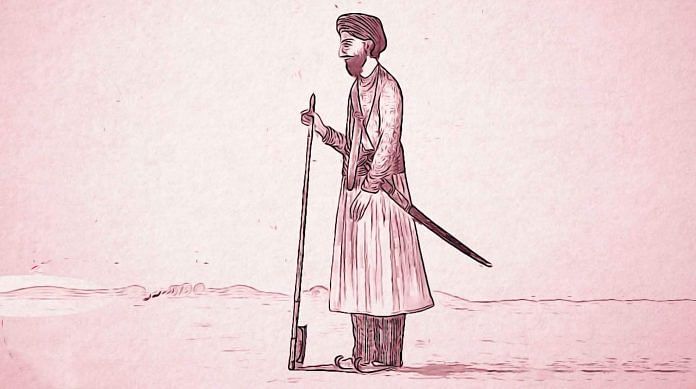New Delhi: India’s erstwhile British rulers would have found a ring of truth to Congress president Rahul Gandhi’s “chowkidar chor hai (watchman is thief)” jibe, but not because they had anything against his target, Prime Minister Narendra Modi.
The word “chowkidar”, the fulcrum of Modi’s latest campaign push for the Lok Sabha election, brooked deep distrust with the British, who saw them as aides to theft and con.
The post of chowkidar
The British brought chowkidars, formerly under the control of zamindars (rich landlords), into the administrative fold in 1813 in Bengal.
A regulation introduced that year called for the creation of panchayats to collect a tax from locals for paying wages to chowkidars, village watchmen entrusted with the area’s security.
In 1838, a judge in Cuttack, then a part of the Bengal presidency, described chowkidars as “employed during the day to assist the zamindar in collecting his rents, and at night they act as the agents of the notorious characters to point out where property is to be found”.
In 1856, the first Lieutenant Governor of Bengal Sir Frederick James Halliday was quoted as saying that chowkidars “are all … linked to, thieves or robbers…when anyone is robbed in a village the first person suspected will be the village watchman”.
It was an Act of 1870 that helped transform the chowkidar into a respectable and trusted agent — the law dictated that chowkidars would be appointed by the district magistrate on salaries they thought fit, with the wages to be recovered from locals on parameters assessed by panchayats.
However, the post of chowkidar was still looked down upon by the public, and usually occupied by members of the lower castes.
Also read: PM Modi’s allies exempt from ‘chowkidar’ prefix drive, but it spares none in BJP
Their role
During colonial days, chowkidars served as a link between the local population and British rulers.
Though chowkidars reported many criminal offences to police, they were never “official” members of the force, and were instead seen as being closer to the zamindars.
British scholar H.H. Dodwell weighed in on the role of chowkidars in his book The Cambridge History of the British Empire. “In all villages there were chaukidars [sic], supposed to keep guard at night, to notice the movement of bad characters, to apprehend felons… and to report all the important matter at the thana headquarters.”
However, Dodwell said that they acted in complete violation of their duty. “Chaukidars were useless and corrupt, the supple tools of the zamindar… they had only to establish friendly relations with the police darogas [government police officials] to reign as they pleased over weaker neighbours and reap ample profits from the villainies of banditti.”
Chowkidars were also responsible for reporting the number of births and deaths in a village to police.
However, in his 1929 book Some Economic Factors in Modern Life, British civil servant Josiah Stamp suggested that chowkidars couldn’t be trusted with this brief either.
“The government are very keen on amassing statistics — they collect them, add them, raise them to the nth power, take the cube root and prepare wonderful diagrams. But what you must never forget is that every one of those figures comes in the first instance from the [chowkidar], who just puts in what he damn pleases.”
Also read: The participatory campaign logic behind ‘Main Bhi Chowkidar’




When every neta is a chor then what is the point in blaming chowkidaars alone? A better slogan would be “Jab saarey neta chor hai, Sirf chowkidaar pe kyun jor hai?”
How deep is your hatred for Modi that you have linked it with Britishers hatred for browns…… Even the fourth estate has also failed this great country…. To hell with….